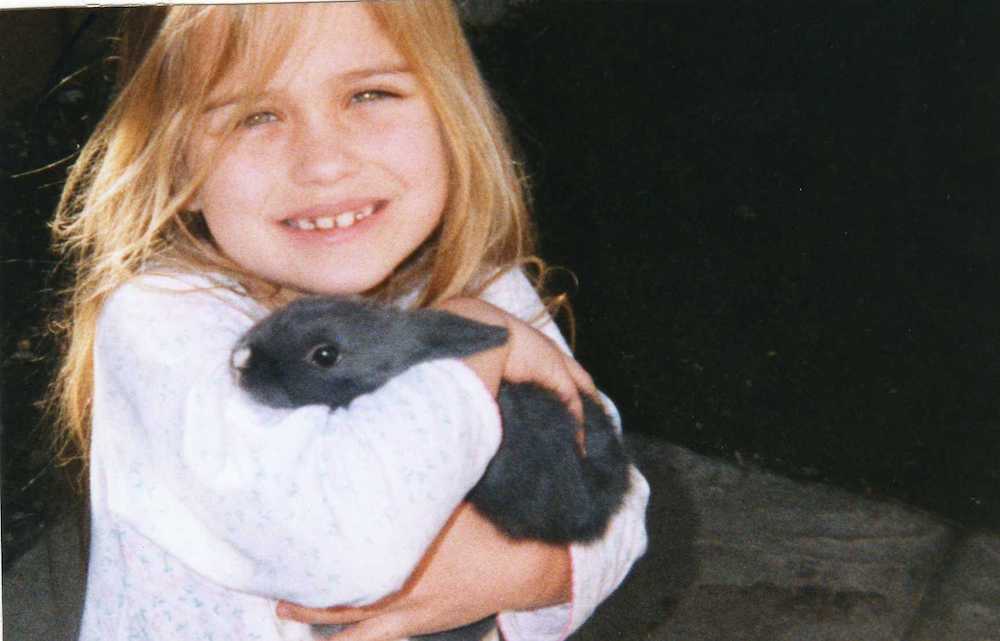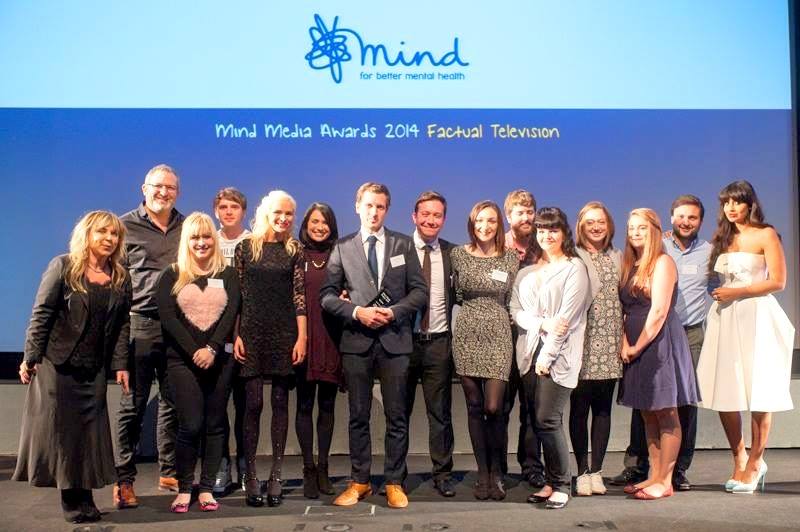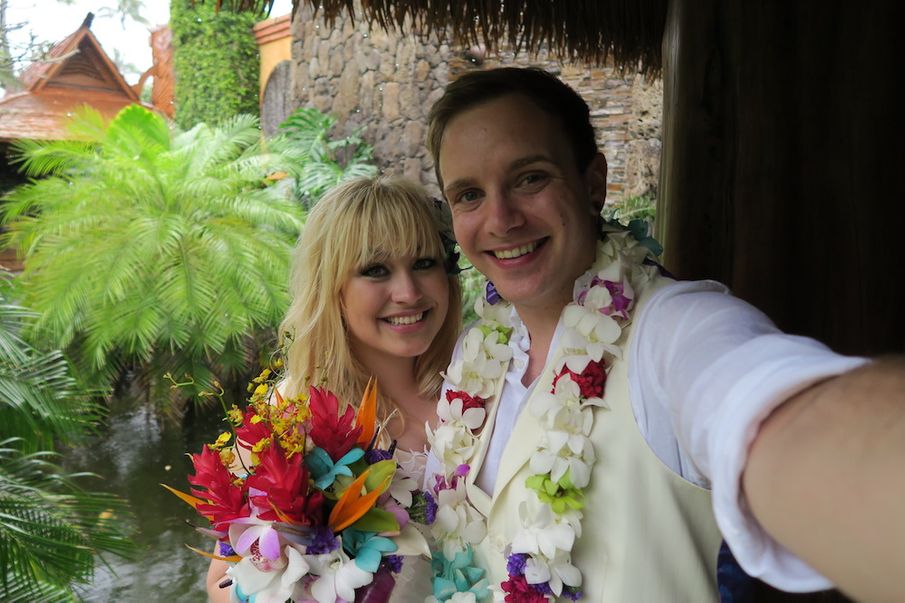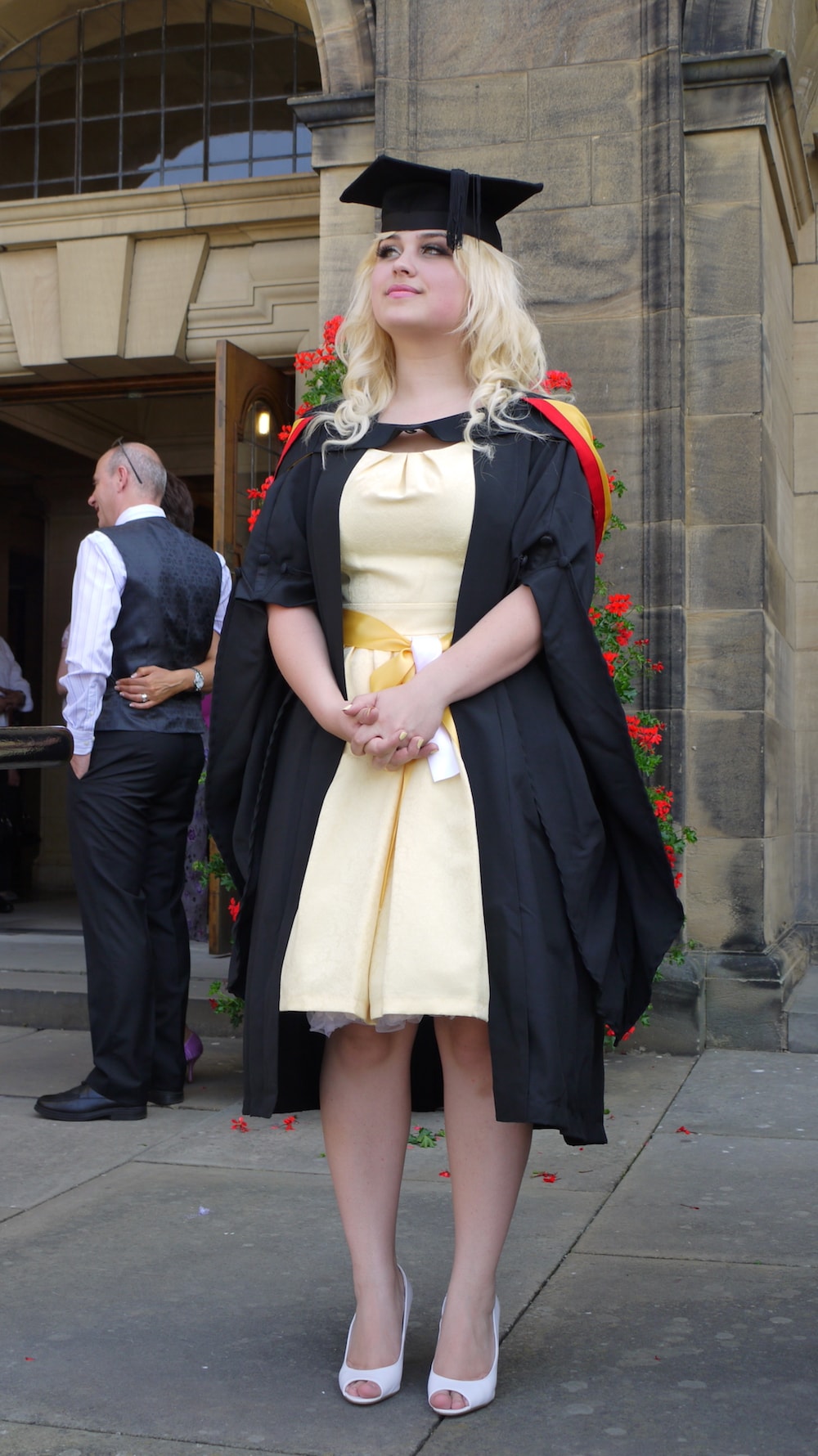After growing up with memory loss and blackouts, Jessica’s passion for psychology led her to recognise her own condition – dissociative identity disorder
Jess graduated from Bangor University in 2013
At six years old, a boy called Jake and I, tried to create an imaginary friend. Jake was small and shy, with these big royal blue eyes. He was sweet and gentle, and we’d developed a really close bond over the time we’d known each other. We sat together, closing our eyes, trying to create an imaginary creature – a hamster. When we looked up and saw no ball of fluff, we shut our eyes and tried again.
The excitement and magic of it soon left when we opened our eyes for the umpteenth time and no imaginary friend had appeared.
Ironically, no one but me could see Jake – the boy I’d talked to was in my head.
I’d forgotten about Jake for some time, just remembering him fondly as a boy I once knew and played with, and the rest of my childhood seemed a blur. Unbeknownst to me, putting together the pieces of my daily life was a task that most people didn’t have to do.
At nine years old, I began to suffer with panic attacks. I was unable to change for P.E. without suffering these bouts of upsetting suffocation. I dreaded anything that would make me feel exposed, and yet there seemed to be no cause.
Then at 12 years old, flashbacks of childhood trauma began to flood my vision. I suffered terribly with night terrors and the panic attacks grew worse. I had no understanding of why this was happening to me, but it was tiring and relentless.
I remember crying to myself in the mirror – my body was developing and changing rapidly and yet it didn’t feel like my own. I would wear baggy clothes and hide my breasts with a sports bra. I felt so confused over my gender, my sexuality, and my identity.
Ironically, no one but me could see Jake – the boy I’d talked to was in my head.
But it was during a drama class that I began to realise something was happening. “You talk in an American accent whenever you perform,” my teacher told me. But I was adamant I couldn’t have been. It was only when I was filmed and watched myself back for the first time that I realised it wasn’t me performing.
As I listened to the voice coming out of my mouth – the American sing-song voice in a slightly deeper tone – my heart hit the floor. The person moving my mouth was the boy I had known in my head all those years ago. It was Jake, and he had grown up too.
I realised that whenever Jake took over, I’d lose chunks of my memory. In shock and denial, it became a mission for me to shut out anything to do with these “people in my head”.
I’d grown up with boys’ clothes that would hide my figure – I’d found it hard to know whether I was a boy or a girl and whether my name was really my own. But now that Jake had come forward, it all started to make sense. I had more revelations as I became more self-aware. There was a slightly older boy with a posh English accent, who’d sometimes make an entrance, too – I’d often been quizzed about whether I was English when, in fact, I was born and raised in a little Welsh town. Jamie seemed to be confident and charming, and as I glued the pieces together of who was in my head, I began to make more sense of what was left and what belonged to me.

Unbeknownst to me, putting together the pieces of my daily life was a tast most people didn't have to do
For so long I’d been pushing the people in my head away, and yet I still struggled with blackouts and memory loss – it wouldn’t stop, no matter what I did. If anything, it seemed worse. That’s when Ed became apparent. I’d return to my body with self-harm injuries, completely terrified. I was frightened, lost, and didn’t know what to do. But it was at that point I noticed these people in my head could interact with each other; Jamie became a soothing ear to Ed. I could hear their conversations sometimes, and noticed they weren’t so frightening – Ed was troubled but he didn’t mean to take it out on me.
On my 16th birthday, I introduced the “people in my head” to a new boy I’d met, Gareth. He was handsome with a kind smile and I felt I could talk to him about anything. Rather than running for the hills, Gareth wanted to know more about these people and how they influenced my life. He didn’t judge me or the people in my head – he just wanted me to be happy. The concerns of the people in my head were put to bed, and I began to focus on my A-levels.

Gareth and I got married in Hawaii in February 2016
Each symptom spoke to me; it was a tick list of everything I had suffered with for so many years. The people in my head finally had a category – they were known as “alters”. Dissociative Identity Disorder (DID) is characterised by altered states of consciousness taking over and/or controlling thoughts and behaviour. Jake, Jamie, and Ed were all identities within my head. I wanted to deny it more than anything in the world, but with each line I read it became more and more obvious that this is what I had.
I cried to Gareth and told him everything. I was distraught. How could I ever function with something so complicated? But Gareth didn’t flinch. Instead, he was happy we’d found a name for it and that perhaps I could now get help. But it wasn’t that simple…
I would wear baggy clothes and hide my breasts with a sports bra. I felt so confused over my gender, my sexuality, and my identity
I was more able to explain to my doctors what was going on now, but, referral after referral, I was passed around flummoxed mental health professionals – no one could tell me what was wrong, and even when I suggested what it could be, no one knew about DID. My final straw came when I was told: “I can’t help you or know anyone who can,” by a psychiatrist. He was my last hope of helping me control my alters and stopping the blackouts and panic attacks. My A-levels had been a particularly difficult time and I couldn’t take any more disappointment. I threw in the towel and applied to study clinical and health psychology at university.
Regularly being around expert psychologists made me realise how different they were from my small-town doctors – my tutor was incredible. She helped me clarify what was going on, and when my mental health worsened, insisted that I get a diagnosis in order for the university to better support me.
I attended one of the very sparse specialist trauma and dissociation centres in the UK. Corroborated by a specialist, I finally had the answer I had been expecting. I wasn’t sure whether to be happy or sad. I felt so much shame, and yet so much relief. But university ended up giving me support in more ways than one.
Living with people 24/7 got particularly uncomfortable for my alters, who would mask themselves as me, but as the months went on, their masking became lax as they started to enjoy my friends’ company. Two friends – Vicky and Jo – asked, “What’s going on Jess? One day you’re happy, the next minute you’re sad. You like tea, but then you don’t?”
Gareth wanted to know more about these people in my head and how they influenced my life. He didn't judge us – he just wanted me to be happy
I was so exhausted that I blurted everything out. All Vicky and Jo did was agree that it made sense, and finally they had an answer. The alters got closer to my friends and then to their own – living university life as if it were their own between classes, and by the end of my final year, we had begun to live in harmony. It was here that Gareth proposed to me – to us – wanting to spend the rest of our lives together.
With my new-found confidence, and growing weary of hiding my disorder, I began to speak out, loud and proud. Aiming to break down the stigma of DID and create awareness of this controversial disorder to doctors and mental health workers, I spoke at university lectures and online to encourage others with this disorder to live their dreams despite stereotypes others may have of this condition.
I set up a YouTube channel “MultiplicityAndMe” and began to send out positivity and encouragement. From there, I was contacted by the BBC to be a part of a documentary called “Diaries of a Broken Mind”.

'Diaries of a Broken Mind' won Best Documentary of the Year at the 2014 Mind Media Awards
I graduated with a 2:1 Honours degree and soon after, we and our friends all sat around to watch the documentary as it broadcast. It was a roaring success and we won a Mind Media Award for the best documentary of the year in 2014.
Gareth and I got married in Hawaii in February 2016, and now have our own home with a cat and puppy included. We’ve developed a good routine with my alters – with me being able to work 9–5 successfully, and my alters using my down time as their own. Whereas Jake might use the morning to go jogging or to the gym, Ed prefers to use his time for cooking and painting, while Jamie helps me study and Ollie kicks back with video games to relax.
I understand that the journey of learning more about myself, and my others, will be a long one, but the journey is one that I’m determined we can do by continuing to work on our communication and cooperation. I’m pursuing my postgraduate degree in psychotherapy and will continue to advocate for DID wherever I can, in the hope that one day, the stigma of this condition will be minimised and people with a diagnosis like mine will no longer fear being open.
---



Comments